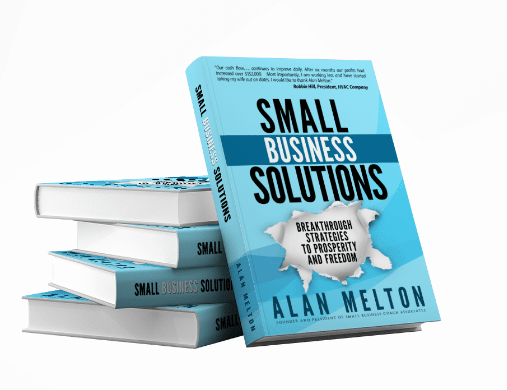VIEW BY TOPIC
- Finding Customers
- Business Systems
- Managing Employees
- Leadership
- Managing Money
Related Posts

Ready to Grow Your Business Fast?
Here’s How I Grew Five Businesses, and Eventually Sold One to a Fortune 500 Company.

3 Ways To Ensure Your Business is Safe and Compliant
Making sure your business is safe and compliant is a crucial aspect to success. In response to GDPR, many businesses have taken multiple steps to ensure the safety of customer data and implemented all the required measures to comply. Even if these modifications may require an extra cost, they’re fundamental to running your business with no complications. Having a safe and compliant business is, in fact, essential to stay away from heavy fines and serious financial consequences. There are many ways by which you can ensure your business adheres to legal requirements. If you’d like to know more about them, keep reading. This blog post will provide you with three ways to ensure your business is safe and compliant.
Let’s dive right in.
What is GDPR?
The General Data Protection Regulation (GDPR) is a set of laws that impose businesses to protect the personal data and privacy of EU citizens.
Personal data is any information related to an individual. Some examples of personal data are name, email address, and biometric data.
If you want to know more about this regulation, check out this in-depth Osano’s guide to GDPR.
Rights of users under GDPR
Under GDPR, individuals have the following rights:
- Right to be informed. This means you must inform users that you’re collecting their data, specifying what type of information you’re gathering and how you’re going to use it.
- Right to access. Customers have the right to access the personal data your company has collected at any time.
- Right to rectify. Users are entitled to correct their personal data if it is out of date, incomplete, or incorrect.
- Right to data portability. Users have the right to transfer their personal information from one service provider to another.
- Right to restrict processing. Users can refuse to have their data processed. Essentially, they may want your business to collect their data but without processing it.
- Right to object. Customers can ask your business to stop processing their data at any time.
- Right to be notified. Individuals have the right to be informed within 72 hours of realizing any data breaches which involve or compromise their personal data.

What does being GDPR compliant mean for a business?
A GDPR compliant business respects the rights of users and protects their personal data by following all necessary steps and implementing the correct procedures.
For example, letting users decide whether your company can collect some of their personal information represents a form of compliance.
What businesses need to comply with GDPR?
The GDPR applies to any company based in or outside the EU that:
- Provides goods and services to EU citizens.
- Monitors people’s behavior in the EU.
In particular, key criteria for companies required to comply are:
- A presence in one or more EU countries.
- It does not involve a physical presence within EU countries, but rather the processing of personal information about EU citizens.
- Over 250 employees.
- Fewer than 250 employees, but data-processing affects the rights and freedoms of individuals and is not occasional.

|
Non-compliance penalties
Failure to comply with the General Data Protection Regulation (GDPR) will result in two tiers of administrative penalties:
- The first tier will have you surrender 2% of your company’s annual turnover or 10 million euros, whichever is higher.
- Tier two violations force you to surrender 4% of your company’s annual turnover or 20 million euros, whichever is higher.
Thus, ignoring this regulation may have devastating effects on your company’s finances.
Why it is important to ensure that your business is safe and compliant
Many reasons explain why it is very important to ensure that your business is compliant and safe. Below you’ll find some of the most relevant.
Avoid severe penalties with becoming safe and compliant
As mentioned above, non-compliance can cause devastating financial consequences for your business because of the heavy fines that it will incur.
Thus, this is one of the first and most relevant reasons that explain why you should ensure your business is compliant.
Enhance users’ and clients’ trust by being safe and compliant
The more you show users and clients that your business complies with the regulations and cares about protecting their personal data, the more you can build trust and convey professionalism.
As a result, they will feel more comfortable sharing sensitive information with your company.
Maximize your brand’s credibility and avoid negative exposure
In the event of a breach and fine penalty, employees, users, clients, investors, and anyone else directly or indirectly involved with your company will build a negative impression about it, as it will look unprofessional and unreliable. This negative reputation will also spread among the audience.
This will make people less willing to do business with you, and you will lose the chance to generate new leads, partnerships, and opportunities for business growth.
3 ways to ensure your business is safe and compliant
There are many ways through which you can ensure your business’s compliance and safety. Here you can find three of the most relevant.

-
Protect users’ personal data using anti-fraud software
Protecting your website along with all your customers’ and users’ data is one of the first steps you need to take in order to avoid heavy fines resulting from non-compliance.
To achieve this purpose, you can use anti fraud software. Such a program would prevent fraudulent transactions involving stolen credit card information and other sensitive data.
In other words, the program will automatically monitor, investigate, and block potential and proper fraudulent activities on your website.
As such, you’ll keep your website and users’ personal data safe, avoiding any breaches of GDPR.
-
Create and update your privacy policy regularly
A privacy policy is a legal document that clearly describes how you manage your users’ personal information, including everything from collection to storage.
To be more precise, a privacy policy includes:
- Personal information. In this section, you need to specify what type of PI your company is going to collect.
- Collection process. State how your company is going to collect the data.
- Usage. Naturally, you need to describe how you’re going to use the information you collect.
- Security. This clause will outline how your company is going to protect all the sensitive information.
- Storage and sharing. Clarify where you’re going to store their data and if you’ll share it with third parties.
- Cookies. If you’re using cookies, users must be aware of this.
- Opting out and data subject rights. You must specify that users are not obligated to provide their personal data. Additionally, make it clear that they can object and request deletion of their information at any time.
- Contact information. In the end, include contact details so that users can reach out to you or your staff for any question or issue.
Naturally, as the regulations change, you’ll need to edit the policy to state clearly what is going to change and how your company will deal with it.
In addition, you’ll need to update it anytime you decide to change the way you process user information.
It will also be your duty to inform all users of the changes. There are several ways to do this:
- Include an update clause in your privacy policy;
- Send an email informing people about the changes;
- Announce the changes via a pop-up on your website.
-
Be sure your employees understand GDPR by training them
You can also ensure your business is compliant by constantly informing and training your employees.
Employees will probably be handling sensitive information as well, so they need to be aware of all the legal practices, what they may do, the user’s rights, and what they can’t do.
You should invest in their training for this reason. You can give them video tutorials or relevant documents that clearly describe the regulations, for example.
Aside from that, you can prepare some individual documents to deliver to employees responsible for handling the personal information of users. With these documents, you can specify how employees should perform their duties and the procedures to follow.
This way, you will be certain they will act according to the law, ensuring the maximum level of legal protection for your business.
Ensure that your employees have access to all these informational resources at any time. So that they may resolve their doubts quickly and proceed with their tasks without interruptions or delays.
Conclusions on creating a safe and compliant company
We’re at the end of this article about three ways to ensure your business is safe and compliant.
The introduction of GDPR had many consequences for all kinds of businesses. Moreover, as the internet continues to develop, this regulation will become even more complex and refined, requiring even more sophisticated monitoring of sensitive information.
As for now, complying with this regulation will spare your business from heavy fines and financial penalties that could compromise its stability.
As stated in this article, there are many ways you can ensure compliance; some of the most effective are: using anti-fraud software, updating your privacy policy, and informing your team.
Thank you for reading this article. I hope it was helpful and insightful for you.
You can learn more about privacy regulations by visiting Osano’s blog. There you’ll find detailed articles and guides on the subject.














